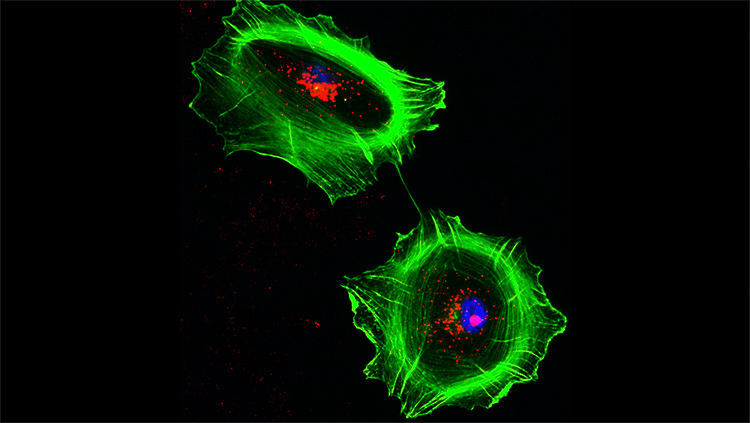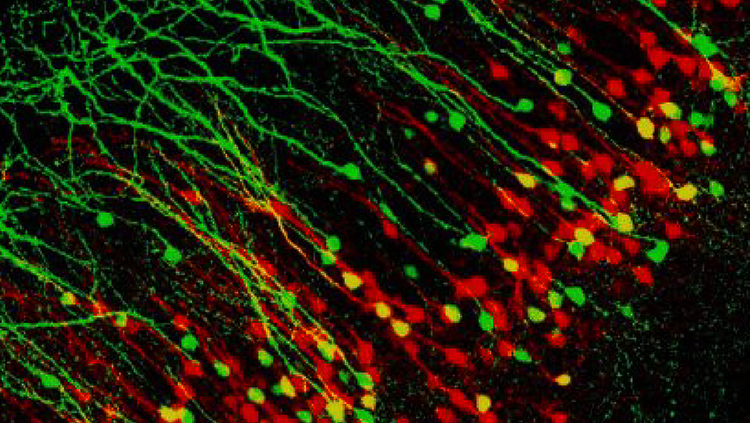Epilogue: Anniversaries Encourage Reflection
ANNIVERSARIES ENCOURAGE REFLECTION— and this essay has offered the opportunity to look back on the history of the Society with an eye to celebrating what’s to come. As Neuroscience 2020 approached and SfN celebrated its 50th year as a Society, events didn’t quite follow the original vision. SfN’s 50th year, so thoughtfully planned and considered, served as a reminder that you cannot plan for everything. In January 2020, news outlets in the United States first started reporting about a novel coronavirus circulating in China. By March, COVID-19, the disease resulting from that coronavirus, was declared a global pandemic, with hundreds of thousands of cases around the world. Things changed quickly with regards to the Society’s day-to-day business. Washington, D.C., where SfN is headquartered, saw cases rising rapidly and began a “stay-at-home” order that lasted for months. SfN staff began working remotely full-time, like most offices worldwide. Meanwhile, labs around the globe shut down in a matter of days, suspending research without a clear picture of how or when things would restart.
A pandemic on the scale of COVID-19 is a once-in-a-generation upheaval that rattled the foundation of cultures worldwide. It also brought into focus the ongoing importance of science. In the words of Barry Everitt, SfN President, in his spring 2020 Neuroscience Quarterly letter: “I am reminded in this time of the value of scientific exchange for the world at large.” While some researchers left the lab to serve on the front lines, using their specialized training to save lives; still others were called into the all-hands search for a vaccine or medical treatment. Labs donated personal protective equipment to those on the frontlines at hospitals and healthcare facilities—signaling that overall, neuroscientists were leaders in understanding we are all in this together.
The Society continued to think creatively about how to support members and the field. Through upheaval and uncertainty, planning for the future required adaptability and creative thinking, as well as focusing on the core of SfN’s mission: advancing scientific exchange, supporting the neuroscience community, educating and engaging the public, and advocating for the field. SfN, like many other organizations, ensured that virtual offerings were front and center, while continuing to build out the infrastructure to support members worldwide without the need to travel. With the global pause to business requiring everyone to freeze in place, SfN was well-positioned to continue to support its global membership with digital programs and content, as well as bringing neuroscience content to the science interested public through BrainFacts.org.
In the vein of large-scale creative thinking, SfN continued to push forward in celebrating the field. Debuting at Neuroscience 2019, the innovative installation Neuro Space took visitors through a technology-based evolution of how scientists view neurons as a meditation on the power of art to reflect those structures we have come to find through science—while also illuminating the vastness of what remains unknown. Neuro Space was the first collaboration between SfN and ARTECHOUSE—a 21st century innovative art exhibition dedicated to showcasing the work of new media artists and producing cutting-edge art exhibitions that merge art, technology, and science. The Neuro Space exhibit brought together a group of scientists led by Dr. John Morrison of the University of California, Davis; and artists led by Los Angeles-based media designer, artist, and spatial thinker Refik Anadol. Building on the success of Neuro Space, ARTECHOUSE and SfN moved forward on the larger-scale Life of a Neuron exhibit that will combine a variety of digital resources with an in-person experience to celebrate the power and beauty of neuroscience, along with 50 years of SfN.
In an uncertain world, what is known is that there will always be a need for science, and that is paired with the need to support the work of the neuroscience field. The Society continues to play an important role, guiding the field through periods of rapid growth and investment, alongside displaying calm and steady leadership in times when attention is required to turn to different concerns. With 50 years of facilitating scientific exchange in the rearview mirror, SfN continues to look to what’s to come with the optimism that science imbues: while we are far from knowing everything, the important work will continue to understand the brain and nervous system and make the world a better place to live.
Beginning in March 2020 when the near-global COVID-19 lockdown began to reshape our world, Council began been meeting virtually every month. Our focus was to determine the impact of the pandemic on our members and SfN as an organization. The decision with the greatest impact on members and SfN concerned the fate of the annual meeting. One of the first steps Council took was to delay abstract submission for Neuroscience 2020 from April to July. At that time, it made no sense to ask members to spend time on an abstract they may never get to present. SfN then began a lengthy process of working with the Walter E. Washington Convention Center and Washington, D.C. Mayor’s office. The goal was to determine if hosting the annual meeting would be permitted given the public health and travel restrictions in place, let alone feasible. Multiple factors led Council to delay abstract submission again, this time to mid-August. However, in early August it became clear that the in-person meeting could not take place in Washington, D.C., and we announced the cancellation of Neuroscience 2020.
Despite cancellation of the annual meeting, we were able to preserve the 2020 awards program. Award winners were announced and honored October 26–29, 2020.
When it comes to Neuroscience 2021, it was possible to preserve much of the 50th anniversary programming slated for 2020 for Neuroscience 2021 in order to be able to plan an a 50th annual meeting celebration. With vaccines becoming rapidly available across the U.S. and more slowly across the rest of the world, progress in the fight against COVID is being made, although in summer 2021 continuing variants and other developments indicate that the pandemic is far from over. The opportunity to hold Neuroscience 2021 in a hybrid format, with a full virtual meeting taking place prior to what will hopefully be a full in-person meeting, opens the opportunity for this annual meeting to not only be a 50th celebration but also SfN’s most inclusive meeting ever. As with many other things, the pandemic has forced change, but there are bright spots to some of these new ways. Whether virtually or in-person, we look forward to neuroscientists from around the world once again gathering to do the work of scientific exchange and to celebrate the ongoing growth and success of the field of neuroscience and SfN.
Related



















